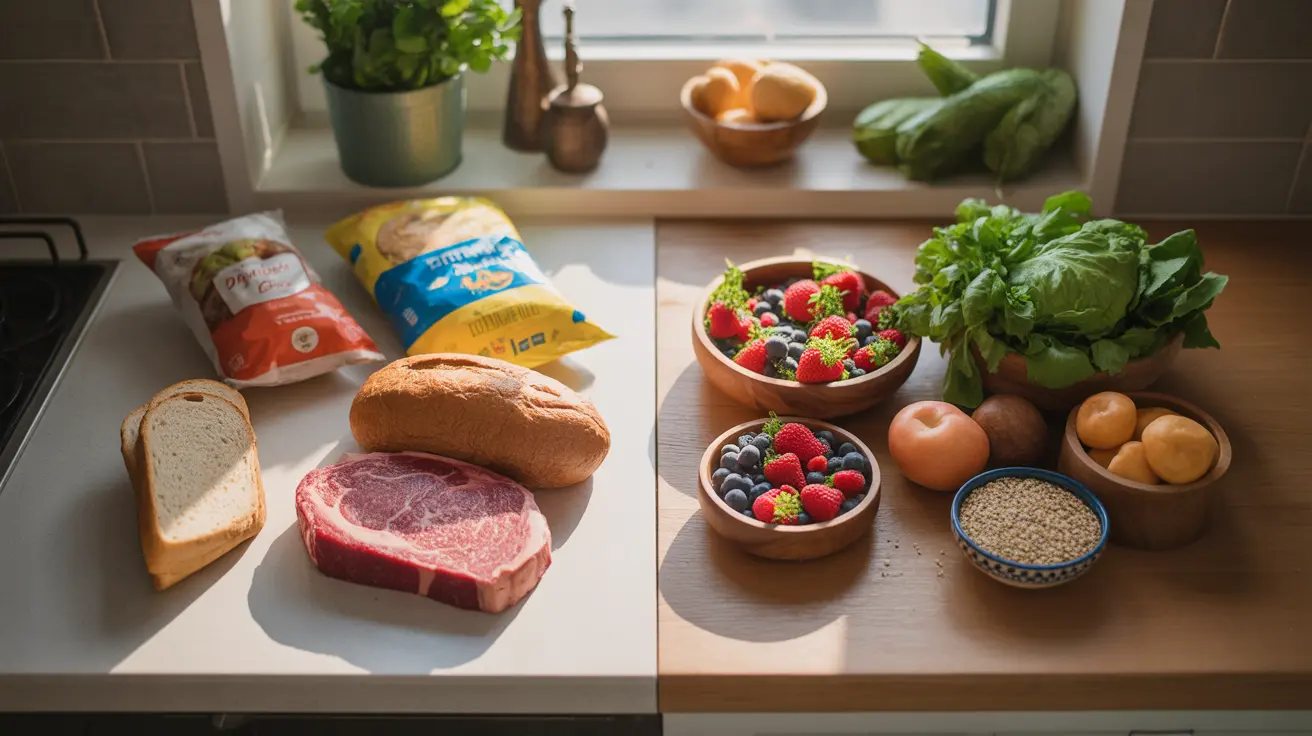Living with psoriasis requires careful attention to potential triggers, and diet plays a crucial role in managing symptoms. Understanding which foods might contribute to inflammation and flare-ups can make a significant difference in your psoriasis management journey. This comprehensive guide explores the key foods to avoid and explains their potential impact on psoriasis symptoms.
Understanding the Food-Psoriasis Connection
The relationship between diet and psoriasis is rooted in inflammation. Certain foods can trigger inflammatory responses in the body, potentially worsening psoriasis symptoms. By identifying and eliminating these trigger foods, many people with psoriasis find relief from their symptoms and experience fewer flare-ups.
Red Meat and Inflammatory Response
Red meat consumption has been linked to increased inflammation in psoriasis patients. The high saturated fat content and specific proteins in red meat can trigger inflammatory responses throughout the body, potentially exacerbating psoriasis symptoms.
Why Red Meat May Worsen Symptoms
Red meat contains arachidonic acid, which can promote inflammation in the body. Additionally, the processing and cooking methods often used with red meat can create compounds that may further contribute to inflammatory responses.
The Gluten Factor
For many people with psoriasis, gluten sensitivity can be a significant concern. Gluten-containing foods may trigger autoimmune responses that worsen psoriasis symptoms in sensitive individuals.
Signs of Gluten Sensitivity
Common indicators of gluten sensitivity include digestive issues, skin reactions, and increased psoriasis flare-ups after consuming gluten-containing foods. If you suspect gluten sensitivity, consider keeping a food diary and consulting with a healthcare provider about testing options.
Processed Foods and Added Sugars
Processed foods and those high in added sugars can significantly impact psoriasis symptoms. These foods often contain artificial additives, preservatives, and high levels of refined sugars that may promote inflammation.
Common Processed Foods to Avoid
- Packaged snacks and cookies
- Sugary beverages
- Fast food items
- Pre-packaged meals
- Processed meats
Nightshade Vegetables and Psoriasis
Some individuals with psoriasis report sensitivity to nightshade vegetables. While research is ongoing, these foods may trigger inflammation in sensitive people.
Common Nightshade Vegetables
- Tomatoes
- Potatoes
- Eggplants
- Bell peppers
The Impact of Alcohol
Alcohol consumption can significantly affect psoriasis symptoms through multiple mechanisms. It can increase inflammation, dehydrate the body, and interfere with treatment effectiveness. Additionally, alcohol may trigger new flare-ups or worsen existing ones.
Frequently Asked Questions
- What foods should I avoid to prevent psoriasis flare-ups?
The main foods to avoid include red meat, processed foods, foods high in added sugars, gluten (if sensitive), nightshade vegetables, and alcohol. Each person may have different triggers, so keeping a food diary can help identify personal sensitivities.
- How does red meat affect psoriasis symptoms and inflammation?
Red meat contains high levels of saturated fats and arachidonic acid, which can increase inflammation in the body. This inflammation may trigger or worsen psoriasis symptoms. Limiting red meat consumption may help reduce flare-ups.
- Can gluten trigger or worsen psoriasis, and how do I know if I'm sensitive to it?
Yes, gluten can trigger psoriasis symptoms in sensitive individuals. Signs of gluten sensitivity include digestive issues, skin reactions, and increased psoriasis flare-ups after consuming gluten. Consider getting tested for gluten sensitivity if you suspect it affects your symptoms.
- Are processed foods and added sugars linked to psoriasis flare-ups?
Yes, processed foods and added sugars can promote inflammation in the body, potentially triggering or worsening psoriasis symptoms. These foods often contain artificial additives and preservatives that may contribute to inflammatory responses.
- How do nightshade vegetables and alcohol impact psoriasis symptoms?
Nightshade vegetables may trigger inflammation in sensitive individuals, while alcohol can increase inflammation, dehydrate the body, and interfere with treatment effectiveness. Both should be monitored carefully and potentially avoided if they trigger symptoms.




